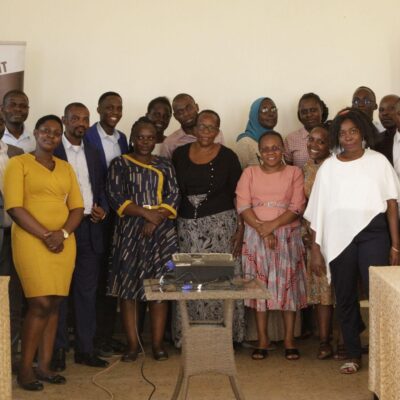Malaria is one of the leading causes of death in Sierra Leone.
With its weather patterns of heat, rain and humidity, it’s common all through the year.
From nationwide research, collected in 2016, 40% of children under five tested positive for malaria, and about 35% of pregnant women. Malaria is nearly twice as high in rural areas as in urban areas, and the disease is most common in the Northern Region.
The majority of the population is young, with eight out of ten people being under 35 years old; however, the voices of young people have been left out of all government programmes around malaria, despite the youth population being so high.
But at Restless Development, we believe that their meaningful participation is crucial in the development of Sierra Leone.
Restless Development, in partnership with the National Malaria Control Programme (NMCP), eHealth Africa and Doctors with Africa (CUAMM), with funds from Comic Relief and GSK, led a youth-led action research programme for two years from 2018-2019.
The programme was known as ‘Fighting Malaria, Improving Health’, and was run in three chiefdoms (Marampa, Masimera, and Buya Romende) of Port Loko District, in northern Sierra Leone.
This particular district was selected as the location for the project because it had the highest malaria rate in children (with 58.5% of children testing positive for the disease).
We wanted to explore the lasting impact this is having on young people in the district, and what health choices they were making to prevent and treat malaria.
By running the programme in one district, young people have been able to gather targeted and detailed research on their peers, including marginalised groups of young people, whilst feeding into the development model that can be taken to scale across Sierra Leone, and potentially even other countries affected by malaria.
A young researcher conducting research in his community.
At the beginning of the programme we recruited and trained 50 young people – young men and women, young pregnant women and young mothers with children under five.
These volunteers were called Young Researchers and supported to research young people’s (aged 12-24) knowledge, attitudes and behaviours about malaria and how to treat it.
Ten of the Youth Researchers were recruited nationally and relocated to the area to volunteer for the first six months of the programme, with the aim of supporting the data collection activities.
Forty of the Young Researchers were selected from within the project communities, giving them the unique opportunity to bring their knowledge of the communities, gain a broader perspective of malaria and young people, and at the same time become knowledgeable about how to lead community-led and inclusive development.
“What I have liked the most is that I have been encouraged to work with areas that I have a big passion about, such as personal growth and community engagement. One area I really have come to develop my skills in is in stakeholder and decision maker engagement to support other young people with great hearts and minds to make informed decisions with regards to their health, and feel stronger.“
– Ibrahim Barrie, Field Officer, Fighting Malaria Programme
The Young Researchers created a body of evidence on the knowledge, attitudes, and behaviours of young people around malaria.
This research, led by and for young people, was then used to make collective decisions about what actions and advocacy to take to influence the development of sustainable youth-friendly malaria services in their area, and encourage their communities to prevent them and their families from getting malaria and to seek medical advice when they notice symptoms.
“The research helped hugely in creating awareness amongst pregnant women, breastfeeding mothers and all young people of malaria and its prevention. I can confidently say that my community is better off now with knowledge about best practices to repel malaria; young people are more confident to access health care facilities for malaria-related services such as getting tested and treated.
“I have become a champion in my community and I can now easily rally my peers for cleaning exercises and other community work. I am now more than confident to engage with stakeholders, who will always seek my views on malaria and other related healthcare services in my community. They will help in bringing out a solution to end the high rate of malaria cases among marginalised groups.“
– Mamusu Dumbuya, 25, Volunteer, Fighting Malaria Programme
Through the ‘Fighting Malaria, Improving Health’ project, Restless Development has demonstrated that young people from marginalised communities can serve as the driving force to improve community health care services in Sierra Leone.
“Young people from marginalised communities in Port Loko District followed basic qualitative and quantitative research methods to deliver a well-structured action research project that captured the knowledge, attitude and practice/behaviour of young people regarding malaria prevalence and treatment-seeking.
“We now have data from 2,488 young people regarding their knowledge, attitudes and behaviours regarding malaria, and created the platform for young people’s voices to inform the National Malaria Control Programme’s Social Behavioral Change Communication strategy.“
– Willie Gus Williams, Programme Manager, Fighting Malaria Programme
If you want to be further inspired by the young people leading our programmes in Sierra Leone, you can follow our work on Twitter, Facebook, and Instagram.


